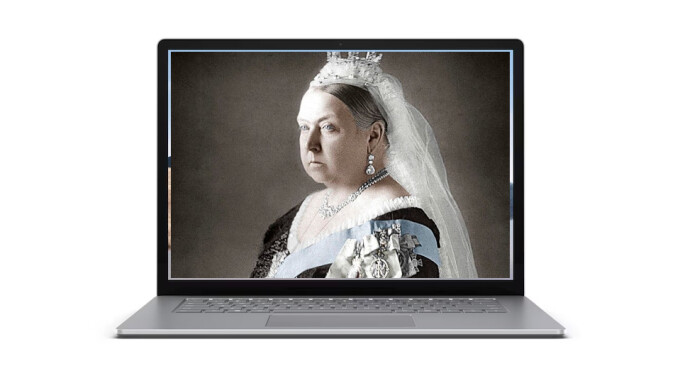LONDON — The U.K. Parliament on Tuesday passed the much-delayed Online Safety Bill, despite vocal criticisms by virtually all digital rights and free speech organizations and advocates.
The House of Lords approved the “controversial new law aimed at making social media firms more responsible for users’ safety on their platforms,” the BBC reported. “The Online Safety Bill has taken years to agree and will force firms to remove illegal content and protect children from some legal but harmful material.”
As free speech advocates have repeatedly pointed out during the protracted, years-long process leading to the current version, the Conservative government’s Online Safety Bill will officially classify and effectively censor any content deemed “harmful” or “pornographic” by the politicians who happen to be in power in the U.K. at any given time.
Though termed a “constitutional monarchy,” the U.K. has no written constitution and no equivalents to the U.S. Bill of Rights, First Amendment or codified Section 230 protections.
The bill grants broad powers to the politicians and bureaucrats appointed to the UK’s regulation agency, the Office of Communications (Ofcom), to target material they consider “harmful,” essentially reestablishing content-based state censorship in the U.K.
“There is concern the bill will lead to a mass age-gating of the UK internet as web services seek to shrink their liability by forcing users to confirm they are old enough to view content that might be deemed inappropriate for minors,” TechCrunch reported.
Industry Attorneys Weigh In
Adult industry attorney Corey Silverstein, of Silverstein Legal, told XBIZ that the bill’s passage “is a massive disappointment and a slap in the face to free speech advocates around the world.”
The new Online Safety Bill, he added, “is nothing more than another attempt by conservatives to obtain as much power as possible to exercise prior restraint. I remain hopeful that the U.K. public and free speech advocates will continue to protest and fight against the enforcement of this awful bill. The U.K. lawmakers supporting this bill can argue until they are blue in the face that this bill is about ‘protecting children’ but it’s quite evident that this bill is all about the government giving itself the power to decide what they deem appropriate to be published online.”
Lawrence Walters, of the Walters Law Group, told XBIZ that the legislation represents “a win for government censorship and a loss for online freedom.”
Bureaucrats, Walters added, “will now have the power to deem disfavored content harmful, resulting in a potential sterilization of the internet in the U.K. While unfortunate for U.K. users and platforms, the passage of this legislation highlights the importance of the First Amendment and Section 230 in the United States. In this country, we have — thus far — prioritized a robust marketplace of ideas and protection of online expression over the desire to censor speech. The challenge will be our ability to maintain these core values in the face of mounting pressure to censor the internet.”
'Bad for Human Rights, Bad for Internet Safety, Bad Law'
TechCrunch cited Wikipedia’s Jimmy Wales, who called the new legislation “bad for human rights,” “bad for internet safety” and “bad law.” Wales pledged that Wikipedia “will not age-gate nor selectively censor articles under any circumstances.”
As XBIZ has been reporting, the weakened Tory government of Prime Minister Rishi Sunak was pressured this year by a campaign by hardline conservatives in his own party to address adult content through the Online Safety Bill.
After years of delays, the Sunak government made the controversial bill a priority, seeking to hand a victory to social conservatives, religious crusaders and SWERF activists. Those groups have been conducting a moral panic campaign around “harmful content” — which for many of them includes all porn — through the U.K. media, marketing the bill as a “save the women and children” measure while disregarding or minimizing privacy and technical issues.
In July, Sunak also ordered a review of all legislation relating to pornography, online and off, to ensure that it is “fit for purpose.” Tory Technology Minister Paul Scully told The Telegraph that the Prime Minister’s Pornography Review “will look closely at the laws and regulations relating to offline and online content, informing our next steps” after passing the Online Safety Bill, which leaves the definition of what is “harmful” to the current Conservative-majority U.K. Parliament.
The specifics of the bill’s implementation have been left to Ofcom, “but the Bill is vague on the details,” the Electronic Frontier Foundation reported earlier this month in its analysis of the bill’s dangers to free speech worldwide. “Social media and other sites, where users regularly engage with each other’s content, will have to determine the risk of minors using their site, and block their access to any content that the government has described as ‘harmful.’”
The bill, the EFF concluded, will “lead to a less open, less functional, and less free Internet. Platforms will face criminal penalties for failing to comply and may choose to block young people — including those as old as seventeen — entirely. They may filter and moderate enormous amounts of content to allow young people on the site without age verification. They may filter and moderate enormous amounts of content for young people only, while allowing age-verified users access to all content. Or, they could exclude UK users entirely, rather than risk liability and the cost of expensive and untried age estimation systems and content moderation.”






